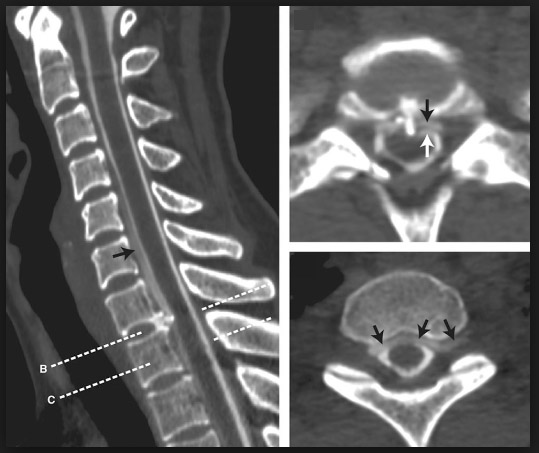Causes
A spinal CSF leak can be caused by a sudden traumatic event or can occur spontaneously. Some predisposing factors linked with a spinal CSF leak include:
1. Connective Tissue Disorders
Ehlers-Danlos syndrome type II
Joint hypermobility
Personal or family history of arterial dissections, aneurysms and nonrheumatic valvular heart disease
Underlying unrecognized intracranial hypertension
Marfan syndrome
Autosomal dominant polycystic kidney disease
2. Spine Disorders
Calcified herniated disks
Osteophytes and spondylotic spurs
CSF venous fistulas
Dural weakness involving nerve root sleeves
Experts have noted that individuals with connective tissue disorders or spine disorders may have dural weakness which can lead to tears in the dura.
3. Medical Procedures (Iatrogenic)
CSF leaks can also occur secondary to medical procedures or trauma. These CSF leaks are not considered spontaneous unless caused by trivial trauma or movement.
Lumbar punctures, epidural catheter placement and epidural injection
Spinal surgery
Bariatric surgery
4. Trauma
Motor vehicle accident, whiplash, sports injury
Trivial injuries or physical activities
Valsalva related: heavy lifting, coughing, straining
Repetitive truncal torsion: tennis, golf, yoga, kayaking, canoeing
Nerve root sleeve tears or avulsions
5. Unknown
Key Notes
Some experts believe that an underlying unrecognized intracranial hypertension may be a contributing factor for some patients.
Sources & Suggested Reading



